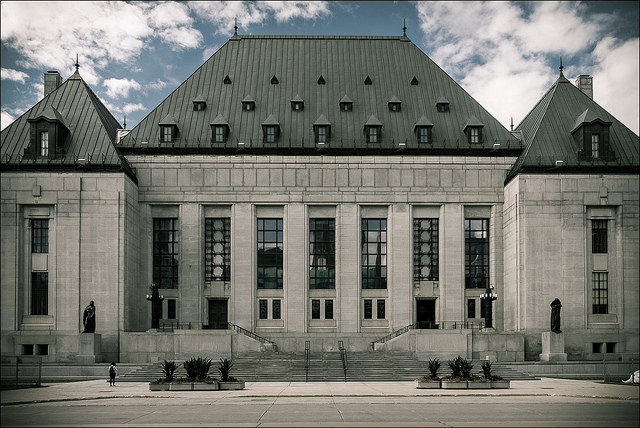Myeengun Henry is from the Chippewas of the Thames First Nation and is an elected band council member with the health portfolio. He is manager of Aboriginal Services at Conestoga College, where he teaches a Native Studies course. He also teaches about traditional medicine at McMaster University. Henry is among a group of people who are presenting a constitutional challenge to the Supreme Court of Canada on the basis that Enbridge’s Line 9, which runs through their traditional territory, does not meet the criteria for proper consultation with affected First Nations.
I understand that the Supreme Court case is to be heard on Nov. 30.
The Canadian government has neglected its duties when it comes section 35 of the Canadian Constitution. Where a project is going to significantly impact our traditional lands, where there is hunting and fishing and gathering, [section 35] provides for meaningful consultation. That’s the basis for us taking this to the Supreme Court.
Where did it all start? Who came up with the idea to take it to court?
Well, it wasn’t that long ago that we began to understand our rights as Native people to protect our traditional territory. We learned that there is a system of the National Energy Board where we can become interveners; it’s part of the process of public consultation. We became interveners when we found out that the kind of oil in Line 9 was tar sands oil and our nation had a real problem with that. So, we were selected as interveners and went to the National Energy Board, stated our case, gave them our land use study and the reasons we thought it wouldn’t be safe to have tar sands running through our territory. That gave us the foundation to go to court. Our history of understanding the court process doesn’t go that far back but we’re right into it now.
Would you say that there were institutional barriers to you understanding court processes?
Over time you have to look at our communities, we were just coming out of the residential schools. We weren’t really a part of that system. We knew we had Aboriginal rights, title rights and those kinds of things, but when it came to the process, we weren’t really a part of the process. We were learning about the environment and this whole system. That’s where we are today. We’re still learning the system but we’re learning through this case.
On Nov. 30 what are you hoping and what outcome are you expecting?
We are expecting and we would like to see our rights looked after properly. The duty to consult issue is kind of a springboard to stop the government from hearing the National Energy Board, the decision-making powers that regulate oil and things like that. So what we’re hoping with this constitutional challenge we can stop this Line 9 carrying tar sands oil through our territory.
How feasible do you think that is?
Well, I’m more positive now than ever before. The Canadian government has acknowledged that they didn’t consult with First Nations. What we’ve been seeing in the news recently is that the laws that dictate the National Energy Board process are being exposed. The National Energy Board is full of oil executives who basically make the hearings a formality and all of this is starting to come to light in Canada. I think we stand a really good chance of winning this case.
Like this article? Please chip in to keep stories like these coming.
Flickr/Mike Alexander



